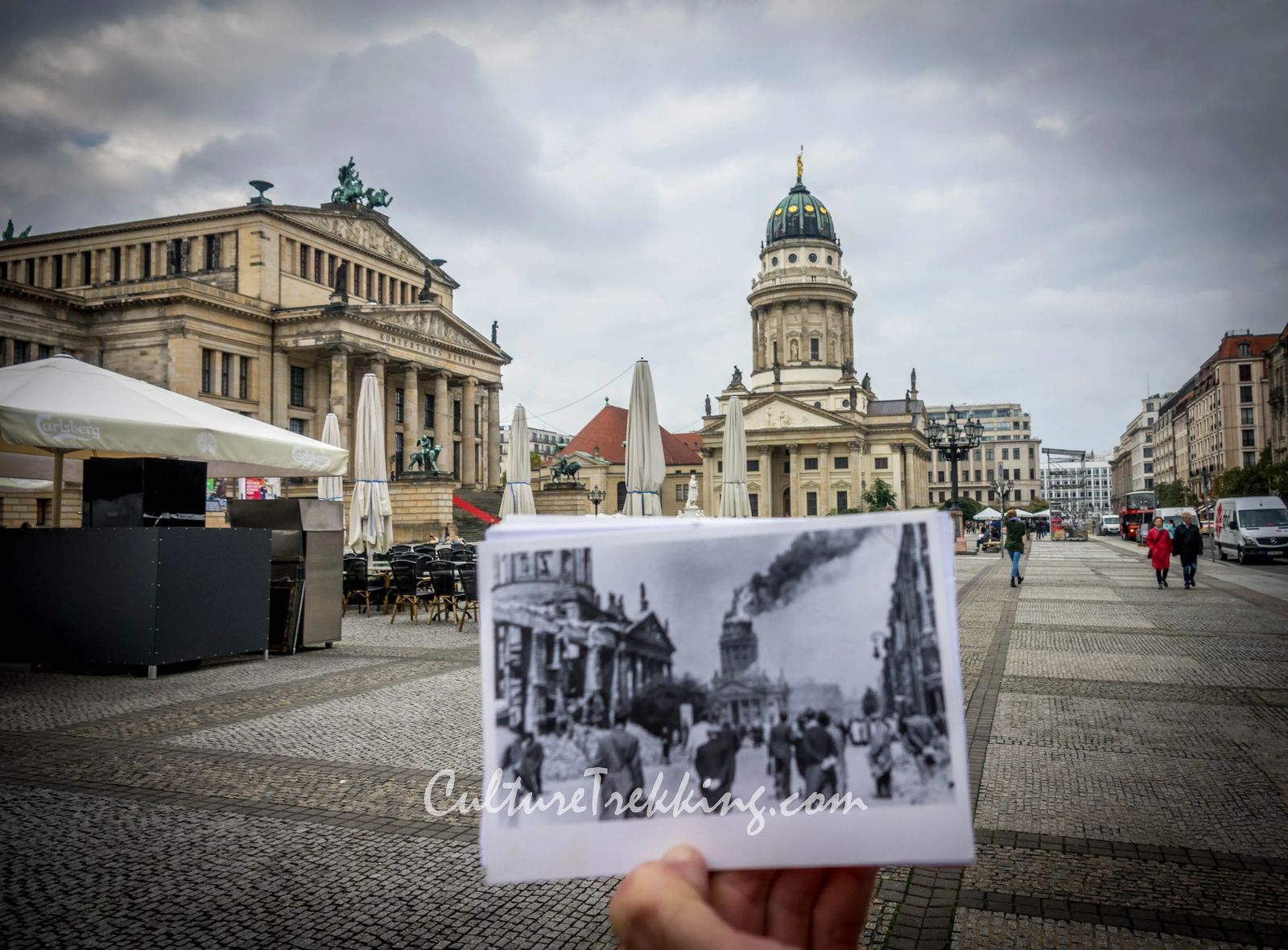
Berlin History at a Glance
I grew up with a Grandmother who does not want anything to do with Germany. This was mostly due to the fact that she was raised in the time of World War II and was taught to loathe all things, German. I dated a guy once with the last name of Jorgens, and she asked how he spelled it, he told her, 'J-O-R-G-E-N-S'. She asked if it was German origination, and he responded smiling with a yes, and she unsubtly responded with, "I hate Germans", after which she walked off. I laughed it off because the spiciness and frank Dutch personality of my Grandmother is something that is very endearing to me.
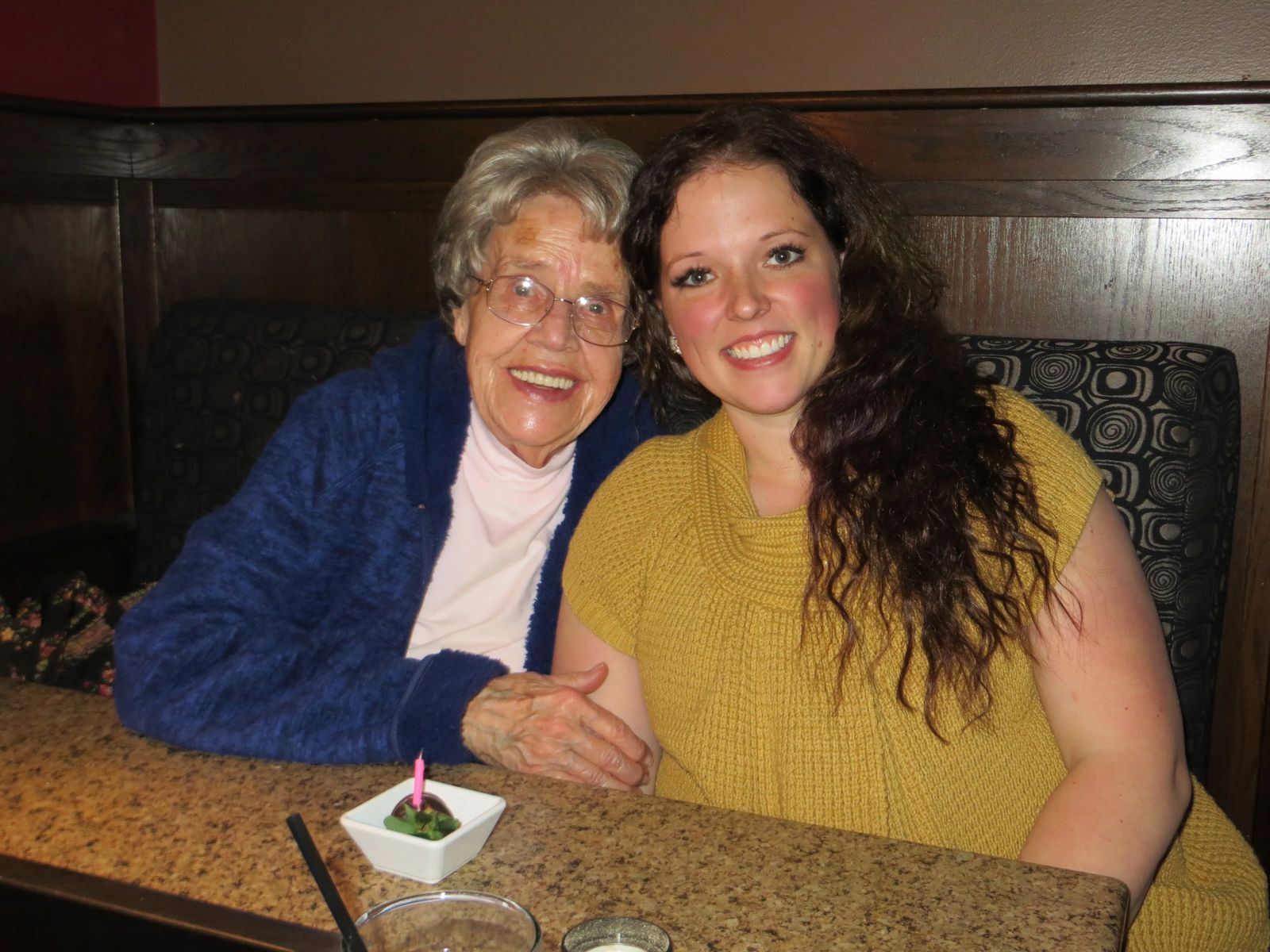
Her German aversion was a drawback to my perception of the German people, despite my efforts to not let it affect me, it did. I was slightly nervous to go to Germany, as I thought it would be full of people with suppressed military regime like attitudes. After visiting, I feel I can say, the German people are definitely not who I had imagined them to be. It gave me a greater understanding to learn their history, how the circumstances of World War II came about & things they were literally bribed with to go along with the mastermind that created one of the darkest moments in World History. So let us explore a little bit of its tumultuous past so we can better connect as a Culture Trekking Community. For my German friends, please feel free to comment/add your thoughts as well.
Berlin History at a Glance:
Berlin has West Slavic roots with the meaning related to the Polabian stem Berl, meaning swamp. Since Ber at the beginning of Berlin sounds like the German word Bar - for Bear, a bear actually appears in the coat of arms.
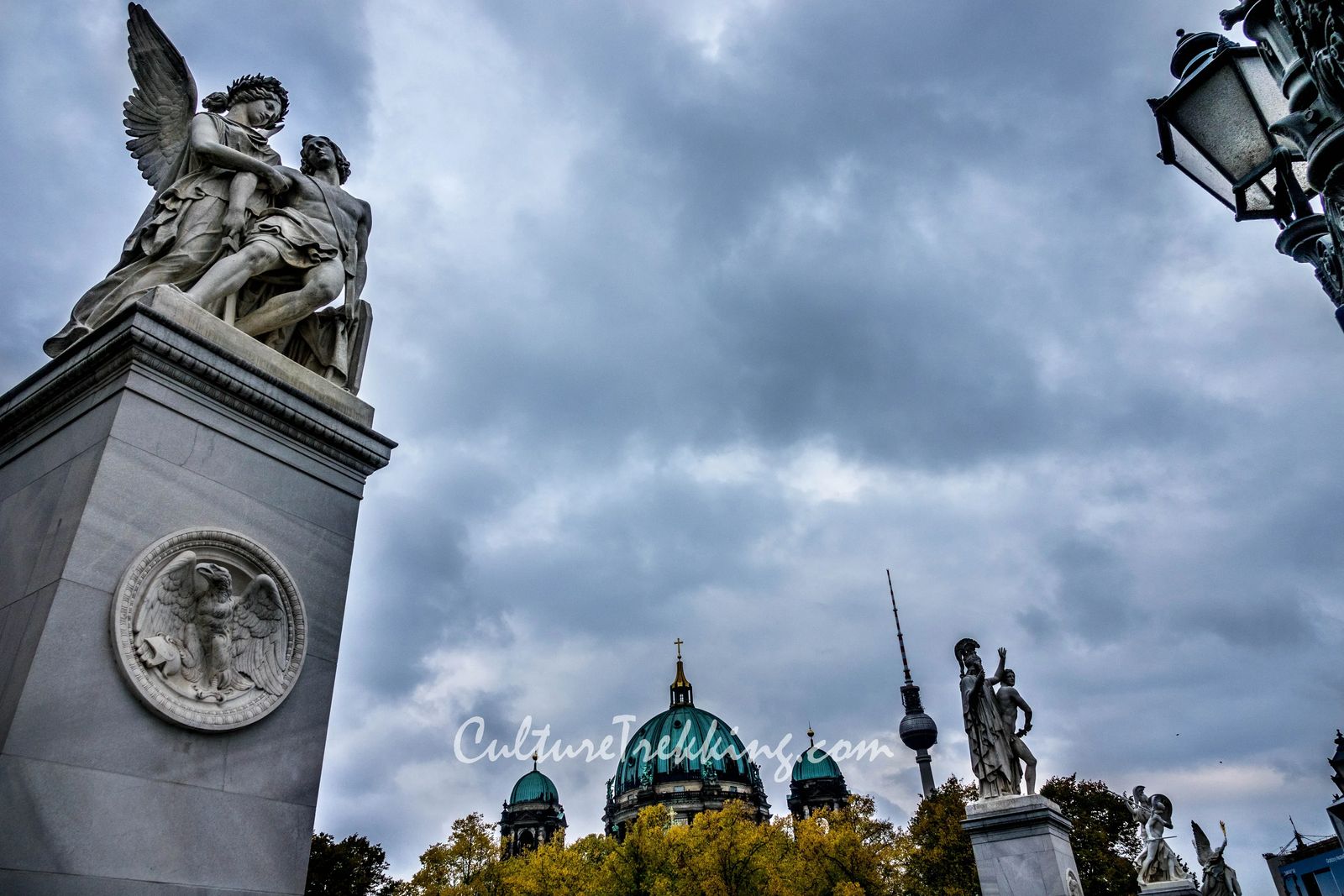
The earliest evidence of settlements dated is from 1192 from wooden house parts. Berlin came into being in the 13th century with it being the major stopping point for two important trade routes.
Berlin became the capital of Margraviate (1417-1701) with Frederick I became the elector of the Margraviate of Brandenburg which ruled until 1440. The 15th Century saw those of the Hohenzollern family rule Berlin until 1918. First, they operated as electors, then crowned themselves Kings of Prussia, and if that wasn't enough - why not just call them German emperors. In 1529 the electors of the city actually converted to Lutheranism.
The Thirty Years War
The Thirty Years War between 1618 and 1648 devastated all of Berlin, 1/3rd of its houses were utterly destroyed & HALF of the city population was killed. What was it all about you ask? Religion actually. When Holy Emperor, Ferdinand II tried to force his people into Roman Catholicism in order to create a unified country. It seems the Protestant Unions that formed did not like this, they did not want him as their ruler. The Protestant League actually chose the Calvinist Frederick V as the Kingdom of Bohemia.
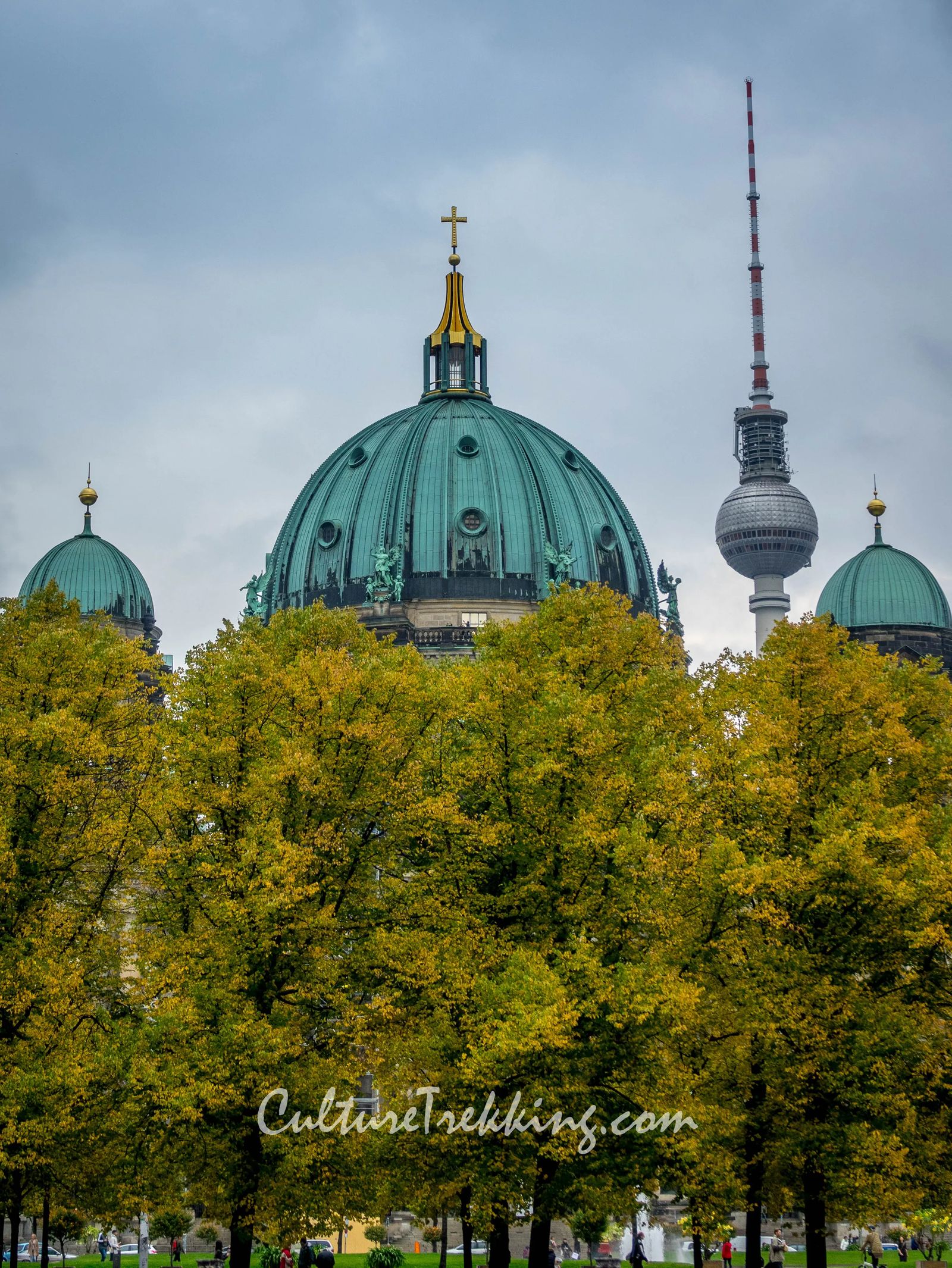
Those of the Catholic faith favored the Emperor and were severely angered, Frederick V was expelled. Multiple Countries became involved because of atrocities viewed from all sides, these were some of the countries involved: Sweden, Spain, Netherlands, France, Italy, and Austria. This war devastated entire regions with famine and disease that resulted in HIGH morbidity and mortality and devastated the populations of both Germany and Italy. Finally, the Thirty years war ended with the Osnabruck and Munster treaty, part of the larger Peace treaty of Westphalia.
The Kingdom of Prussia
The Kingdom of Prussia (1701-1918) came about when the Margraviate of Brandenburg had been in personal union with the Duchy of Prussia. In 1701 the Elector of Brandenburg crowned himself King Frederick I in Prussia after a Dual state was formed with the Kingdom of Prussia. This was the first time that Berlin actually started to grow after merging with 4 other sister cities surrounding it.
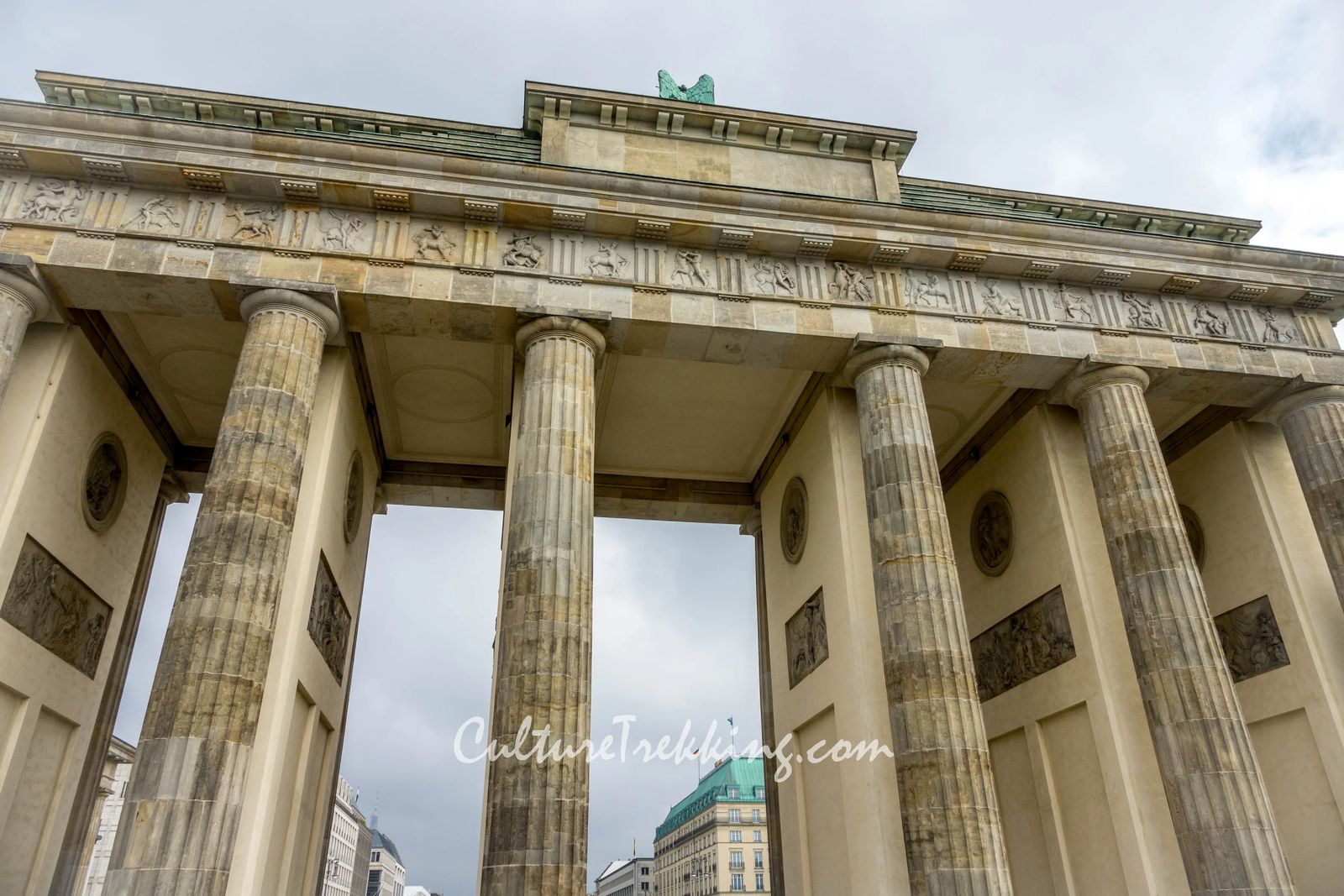
Frederick the Great
1740 saw the coming of Frederick the Great, or Frederick the II; this is the time Berlin saw the first whispers of The Enlightenment, although a 7-year war with Russia was a problem. Then followed the conquest of Napoleon Bonaparte who granted Berlin self-governance in 1806.
Brandenburg and the First World War
1815 Berlin became known as the Province of Brandenburg spurring the Industrial Revolution that transformed Berlin all the way into the 19th century. During this time, more cities merged with Berlin and was then known as The German Empire (1871-1918) War was inevitable, the First World War struck in 1918 and Berlin's name changed yet again to The Weimar Republic (1919-1933) - civil unrest plagued the city & the roaring 1920's influenced the city greatly. Despite this Berlin became a central hub for leadership, science, arts, humanities, and film. This was also the time that Albert Einstein was rising from the poverty he was born to and quickly won his Nobel Prize in Physics in 1921.
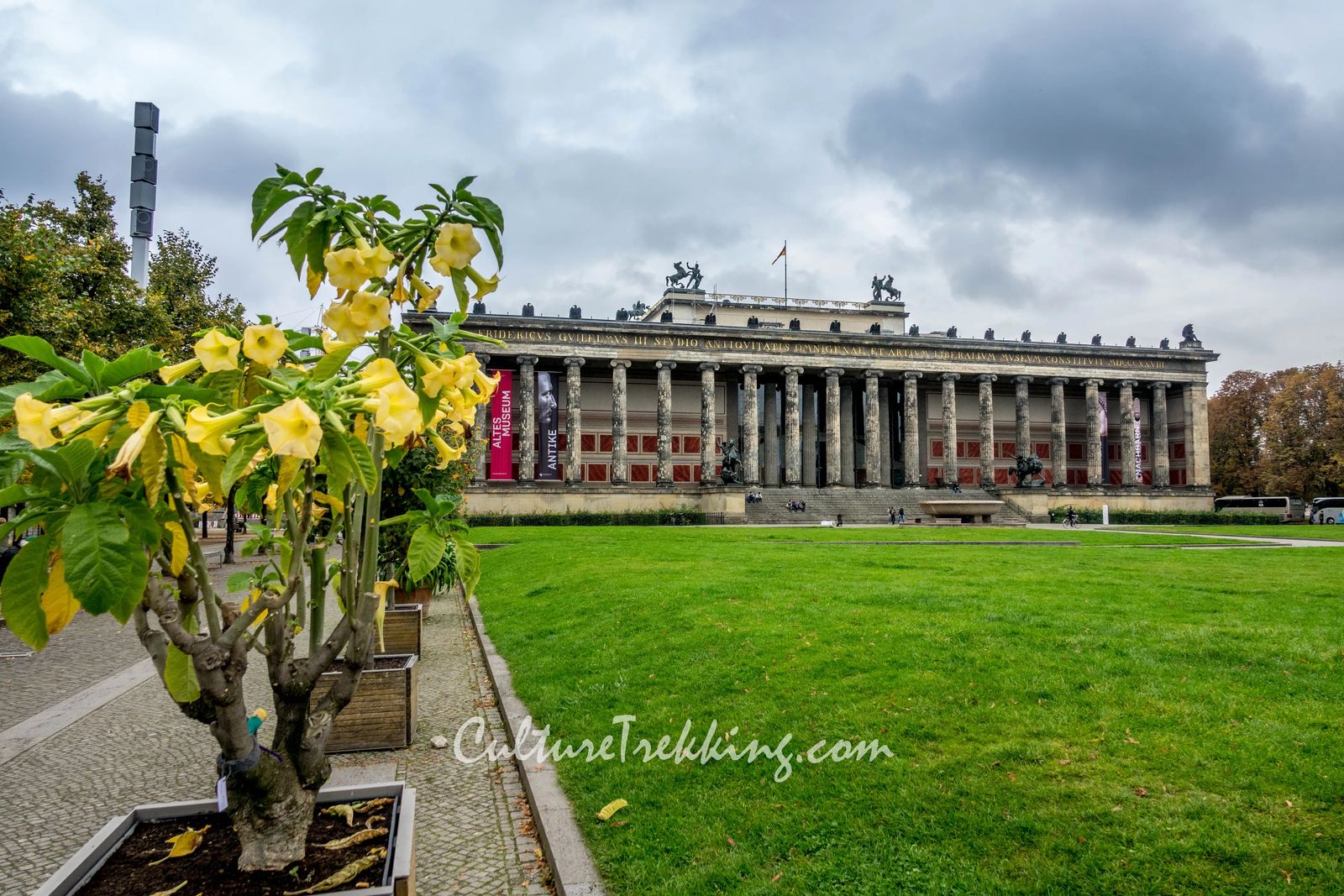
The Third Reich
Yet with every success, Berlin has seen since its inception, war always seemed to follow. In 1933 the infamous Third Reich (1933-1945) was established, with Adolf Hitler as its leader. People in Berlin were trying to recover from the years of war and rebuilding cycle. Quality jobs at the time were very low, and it was often hard to find work. If you did find work, you typically worked overtime without getting paid to do so. The story of World War II began in these conditions when Hitler came into power and offered the people a 'better Germany'.
One where all of the sudden you were able to find a job, get healthcare, have paid time off - the cities were being rebuilt, quality homes were being vacated. On the whole, most locals were in the dark about the atrocities that happened. What was happening in Germany at that time is similar (but not equal) to what nationalist governments do today with their people, they praise all the good things politicians or governments are doing & twist the truth into seeming not so horrible as the rest of the world may see it as. It wasn't until later that the people started to gain a better understanding of what was happening to the Jewish people.
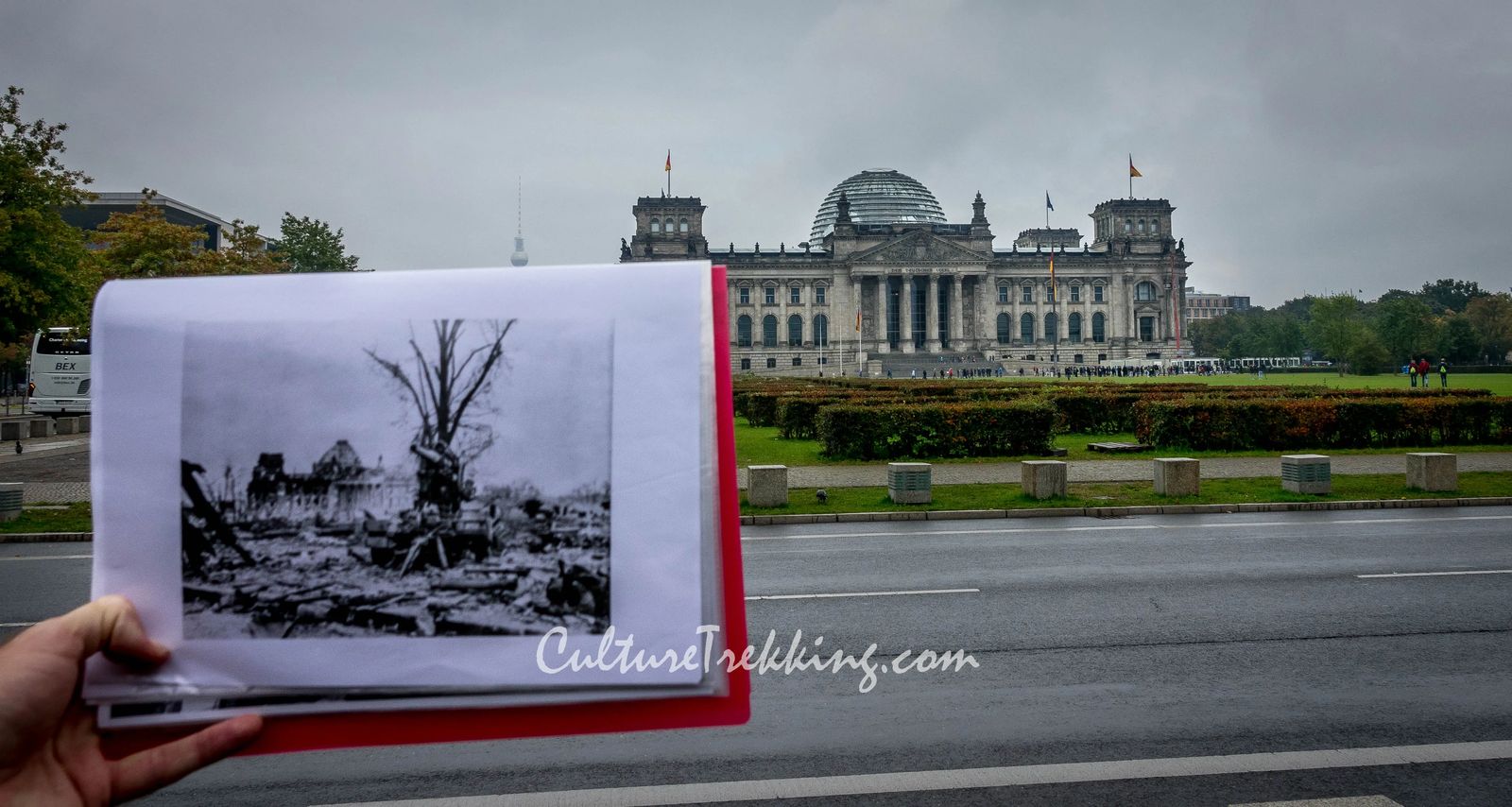
Under the Reichstag Fire Decree gained power and was established as a party leader under emergency conditions after the Reichstag caught on fire. He ruled for the next 12 years under this decree, and when elections came up half of the opposition was already put into concentration camps. His approval rating at the time was around 80%. At the time there were Jewish people in the government, they had money. The population of Jewish people in the city was 160,000 in 1933. Thousands were imprisoned after Kristallnacht in 1938 and put in the Sachsenhausen concentration camp. Overcrowding caused shipment of these poor souls to Auschwitz during World War II, with Auschwitz now being known as a major death camp. In the Battle of Berlin air raids destroyed much of the city with 125,000 civilians being killed.
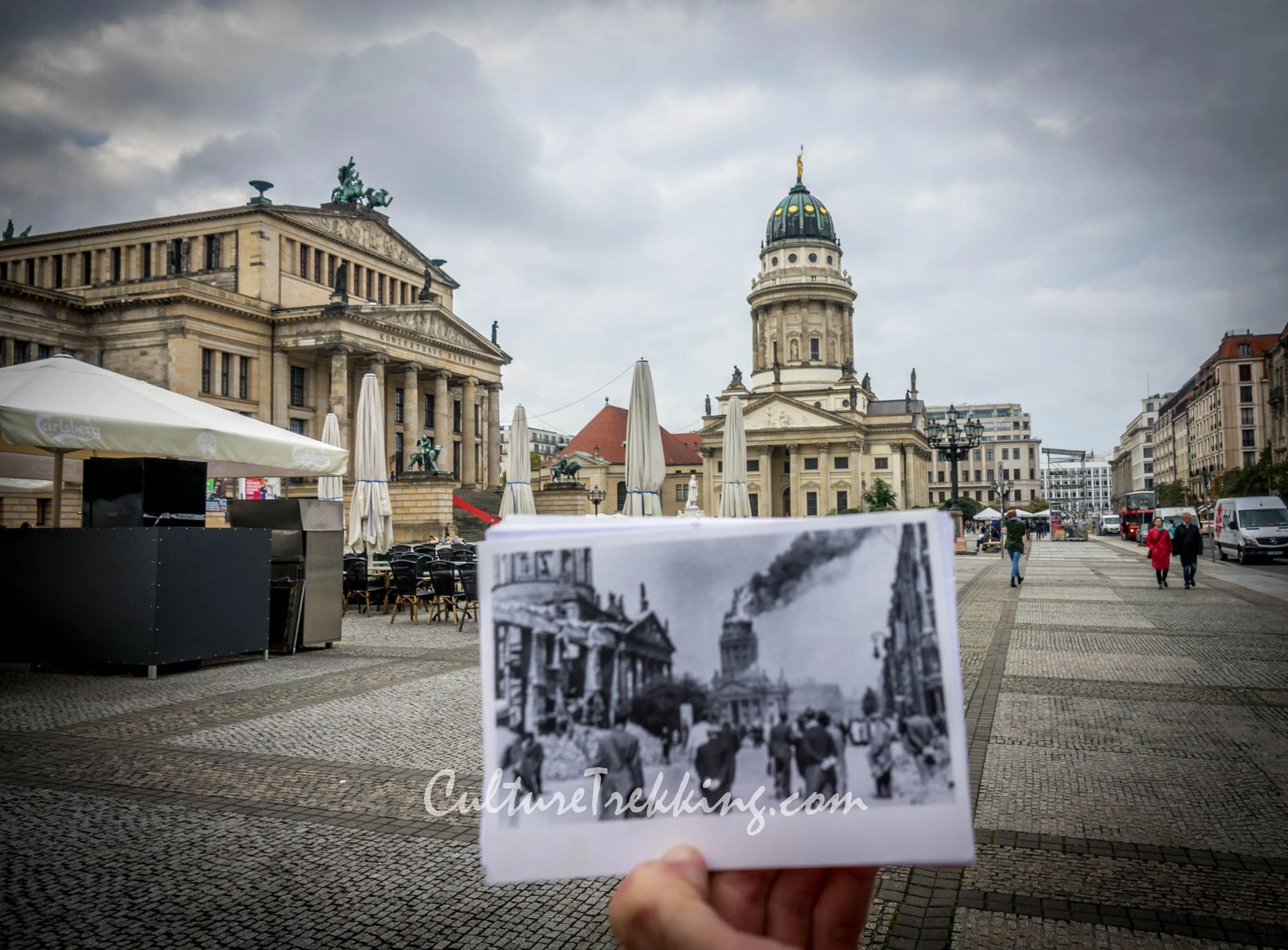
After 1945 defeat of the Third Reich Berlin received many of the refugees from Eastern Europe. The Western Allies occupied the West side of Berlin, and those from the Soviet Sector occupied East Berlin. All 4 great powers (America, France, United Kingdom and the Soviet Union) shared governing responsibilities which led to increased tensions in the Cold War era with people being sectioned off into different areas based on nationality and political affiliations. After World War II Berlin was divided into East and West with a wall surrounding West Berlin from 1961-1989. In 1990 Germany became reunified and again Berlin became the capital.
The Cold War
At the end of World War II, Germany was divided amongst the Allied forces under the Postdam Conference. Those four powers included the United States, Great Britain, France and the Soviet Union. Peace was short lived as the splitting of Berlin into Russian control on the East side, and the other 3 countries on the West side, became ever more competitive and aggressive towards one another. Tensions continued until there was a Blockade by the Soviet Union in June of 1948 where all supplies were stopped from reaching West Berlin. After a distinction of 'East' and 'West' Germany was established....conditions on either side became increasingly different.
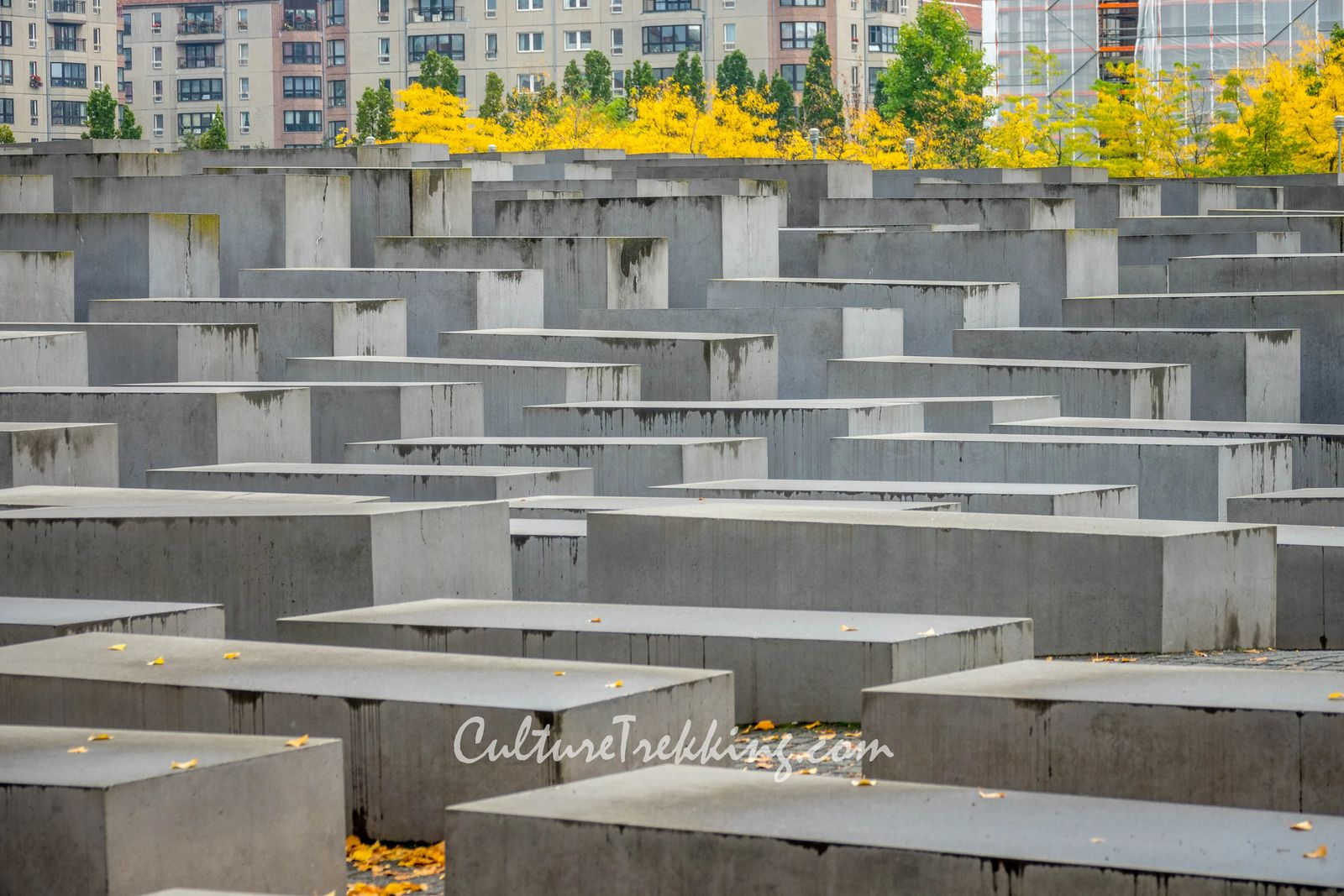
Under the rule of the 3 other allied forces, the economy flourished in West Berlin. As the Soviet Union ransacked and pilfered all valuables from the East side....conditions deteriorated significantly. When East Germany finally became its own country in 1949 privileges of its citizens were severely restricted. By the 1950's most of the citizens had had enough. Hundreds of thousands East German citizens were crossing the border into West Berlin. Most of those who were able to escape were young professionals that were flown into West Germany for work. By 1961 nearly 2.7 million people escaped East German. The Soviet Union tried to circumvent this mass exodus by attempting to take over West Berlin, even threatening Nuclear Warfare. In the middle of the night August 12th, 1961 the Berlin wall was completed.
Holes were dug for concrete posts, stringing barbed wire, telephone wires were cut and railroads were blocked for all 91 miles of it. Whatever side you decided to be on the night of August 12th was the side you were doomed to stay for the next 28 years. Three days after its initial construction it was replaced by concrete blocks and topped with barbed wire again. In 1965 it was replaced again by a concrete wall with steel. The most ominous version was the one finished in 1980...a 12 foot high, 4 feet wide concrete cage. Later additions included an inner wall that created a 'no man's land', 300 feet of the deadly ground. Boarding up windows and guarding stairways thwarted the escape attempts. Sewer lines connecting East and West Berlin were shut off and re-routed. The 'Death Strip', created in 1960 with a standard order to 'shoot on site'.
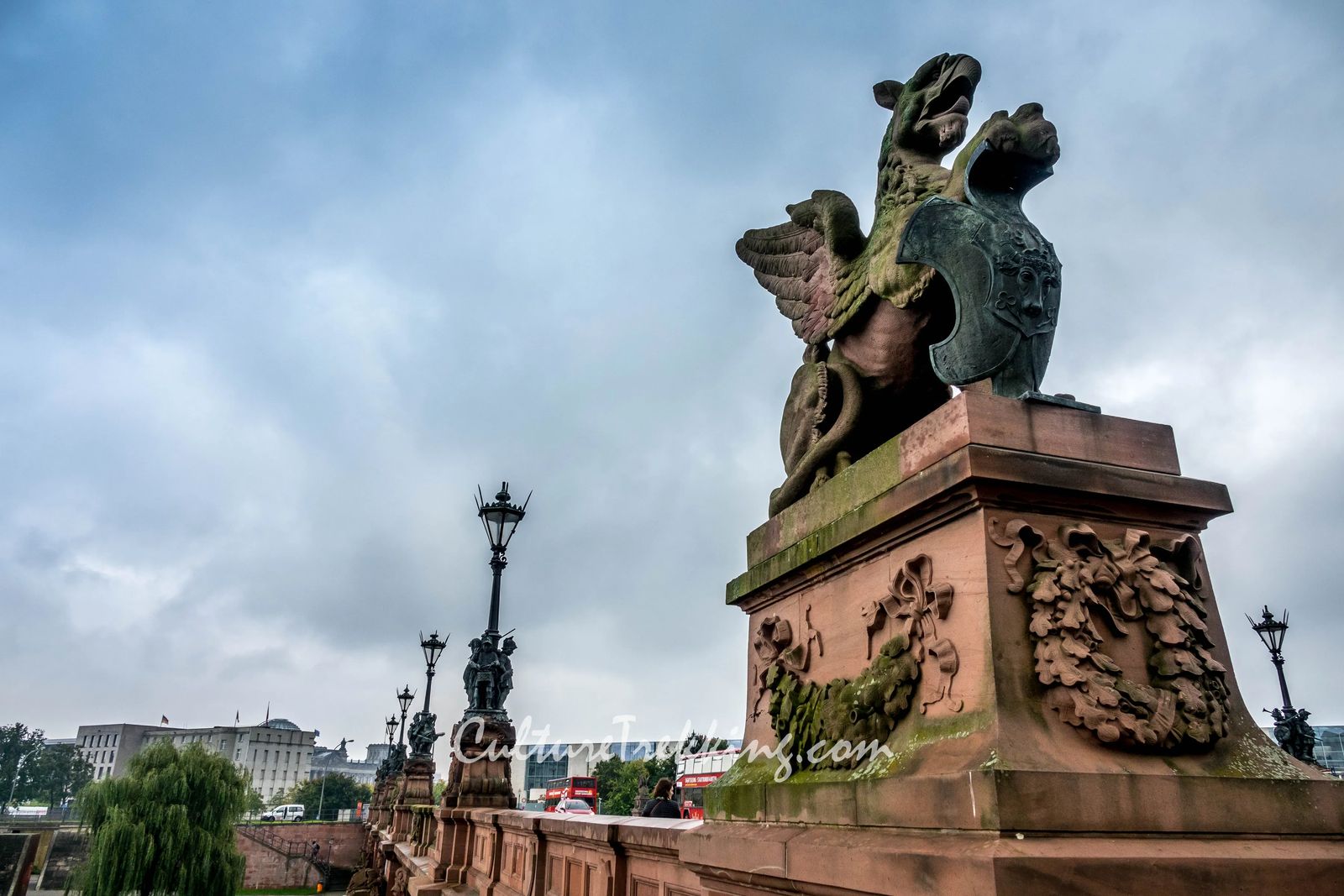
Extra security was taken with guarding the wall. No one could work on the same shift or station twice. Escape and coercion between guards was thwarted by frequent rotation. The guards were also instructed to shoot without warning, 69 people died that first night. The fall of the wall happened rather quickly, on November 9, 1989. An East German official, Gunter Schabowski, was questioned by a reported on when restrictions on travel visas to West Berlin would be lifted. He responded without hesitating to think of his response as, "Immediately, without delay". The East Germans were supposed to be required to go through a lengthy Visa process to get into West Berlin. A hoard of East Germans approached the wall telling Harald Jager, the chief officer on duty, the news.
With limited communication, confusion, and increasing nervousness on the part of this officer who was expecting his cancer results the next day...opened the gates to West Berlin. The excitement ballooned from there and soon hundreds were arriving at the wall. Armed with chisels, hammers they chipped away at it until the Berlin Wall finally fell. A portion of the Berlin Wall still remains and is memorialized on Bernauer Strasse street. It is surreal to think that such oppression happened, literally, within my lifetime. (For my fellow Americans, if you are male and want to see a piece of the wall, a portion of it is housed in the Venetian Men's restroom behind a protective glass covering).
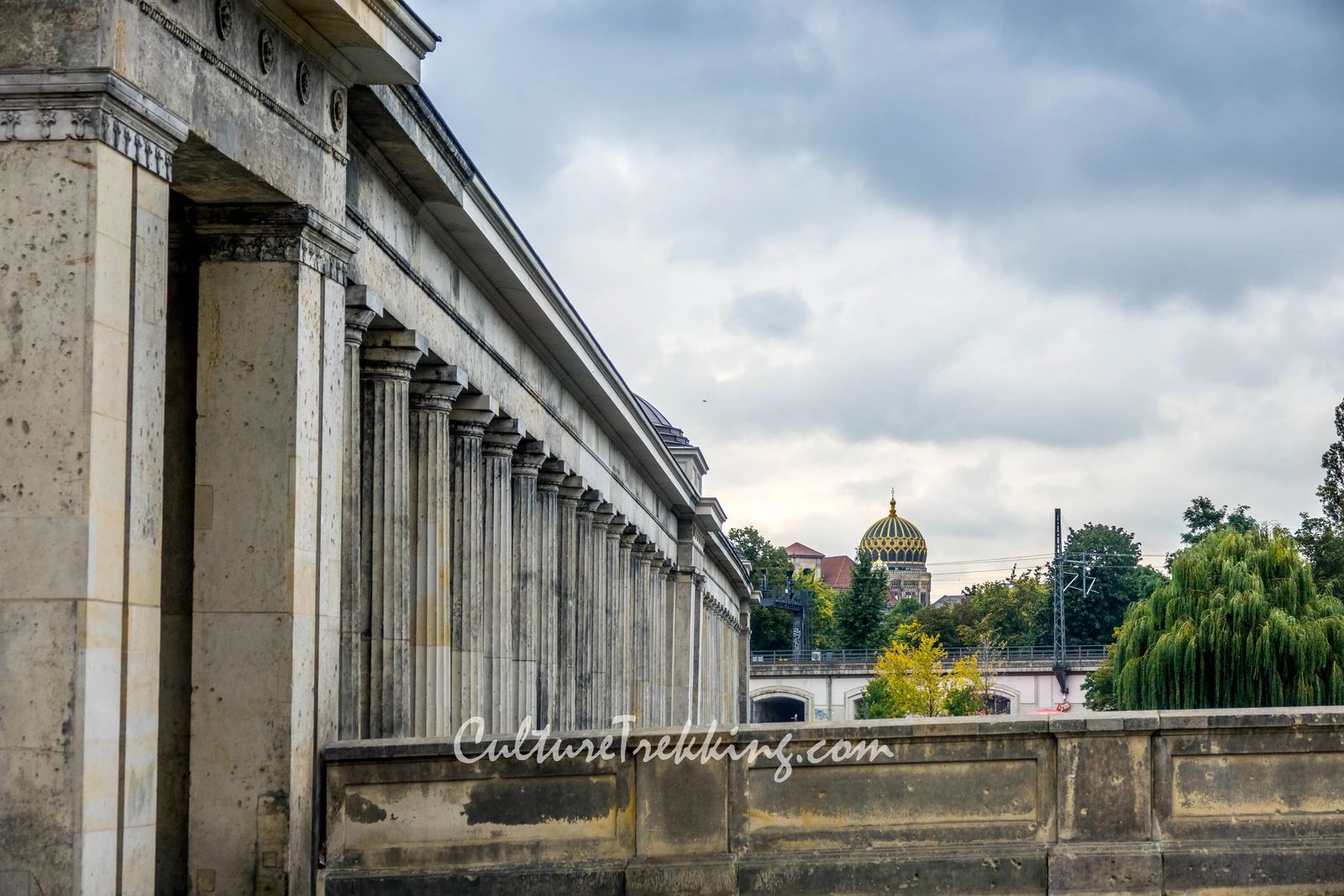
How is Berlin Now?
After the fall of the Berlin wall, Germany was reunified in October 1990. Since 2000 it has been the center of a cosmopolitan entrepreneurial scene. There are many Germans that want to make amends for the past. Remarkably there is a lot of construction and rebuilding still happening in Berlin. The city is clean and modern, yet still faces it's past with an open mind, heart & courage to do so. I told my guide, Sean Stewart of Berlin Historical Walks, that his job was to change my mind about Berlin & make me love Germany because I had been taught the opposite.
I left Berlin that evening, heart aching for that which the people had both witnessed. Where there is heartache there is also hope, this country is stunningly beautiful, the people are ever so kind (at least of what I observed), they care about their city and have the courage to face their past & celebrate the future. Berlin humbled me in ways I did not anticipate nor expect. I cannot wait to return to explore more of not only this city but the country. Happy Travels, Happy Tales, and see you on the flip side ;)
What is your favorite part of Berlin's History?
Would you add anything to this brief summary on Berlin's History?
Where to Stay in Berlin
Like it? Pin it! Sharing is Caring ;)
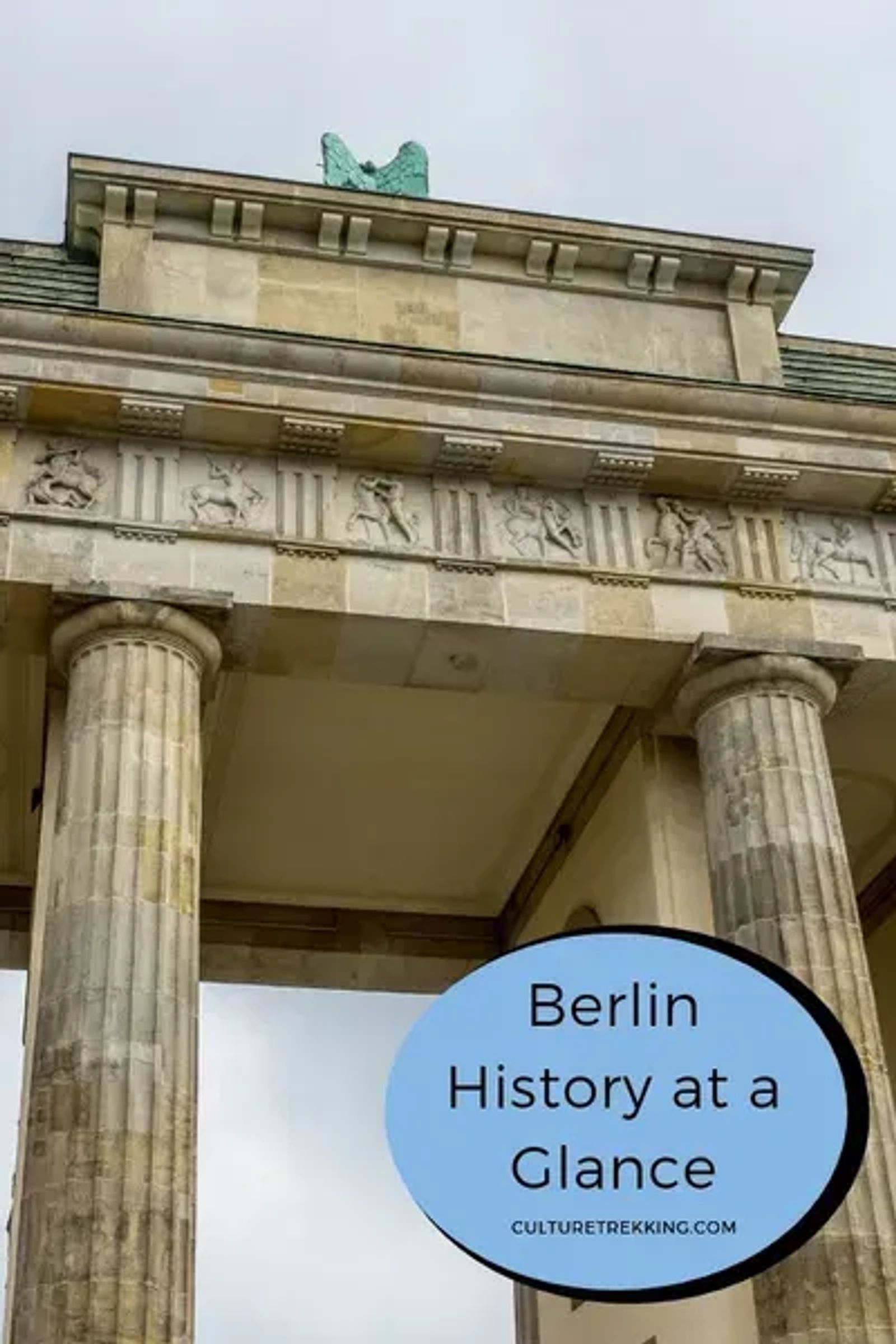
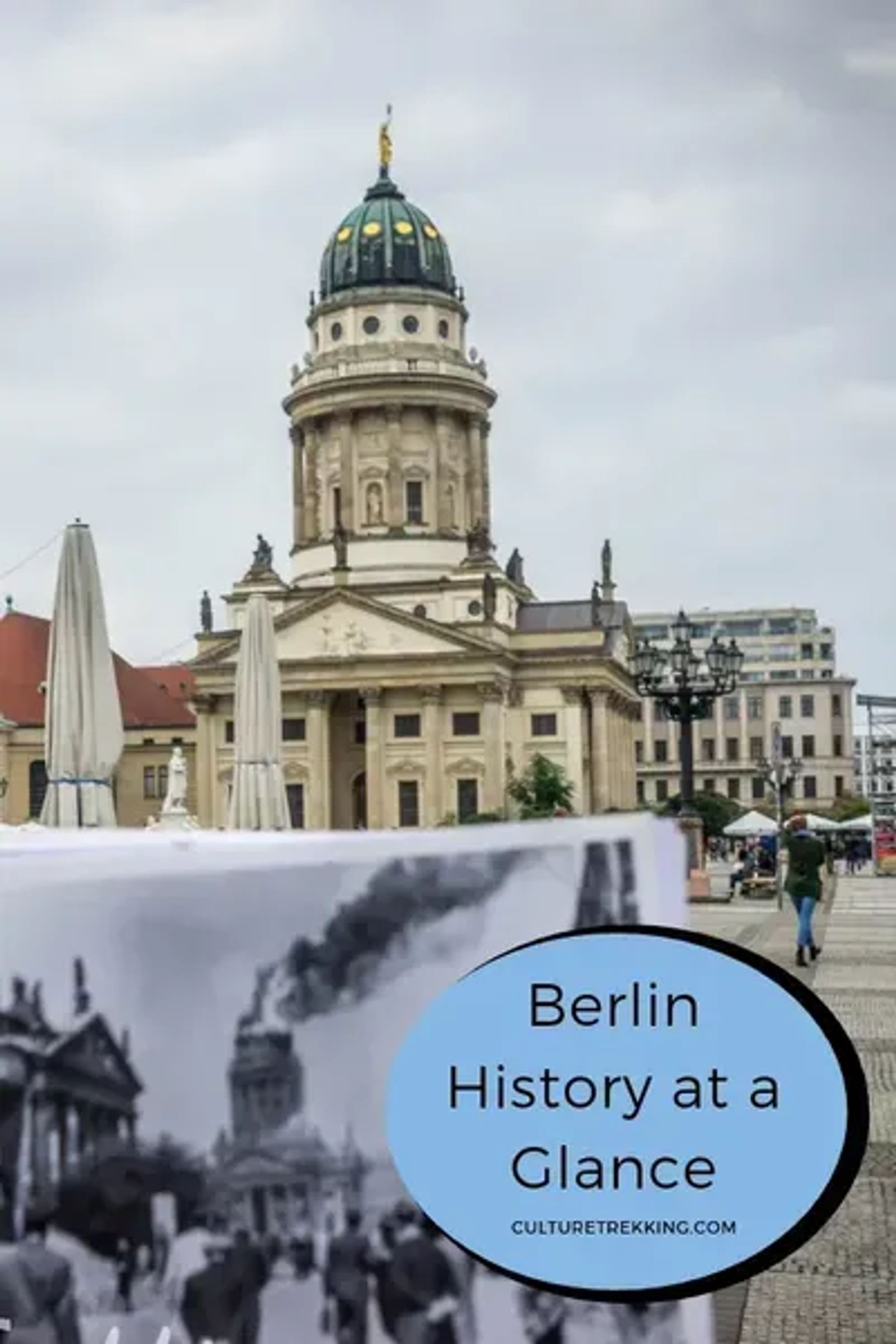
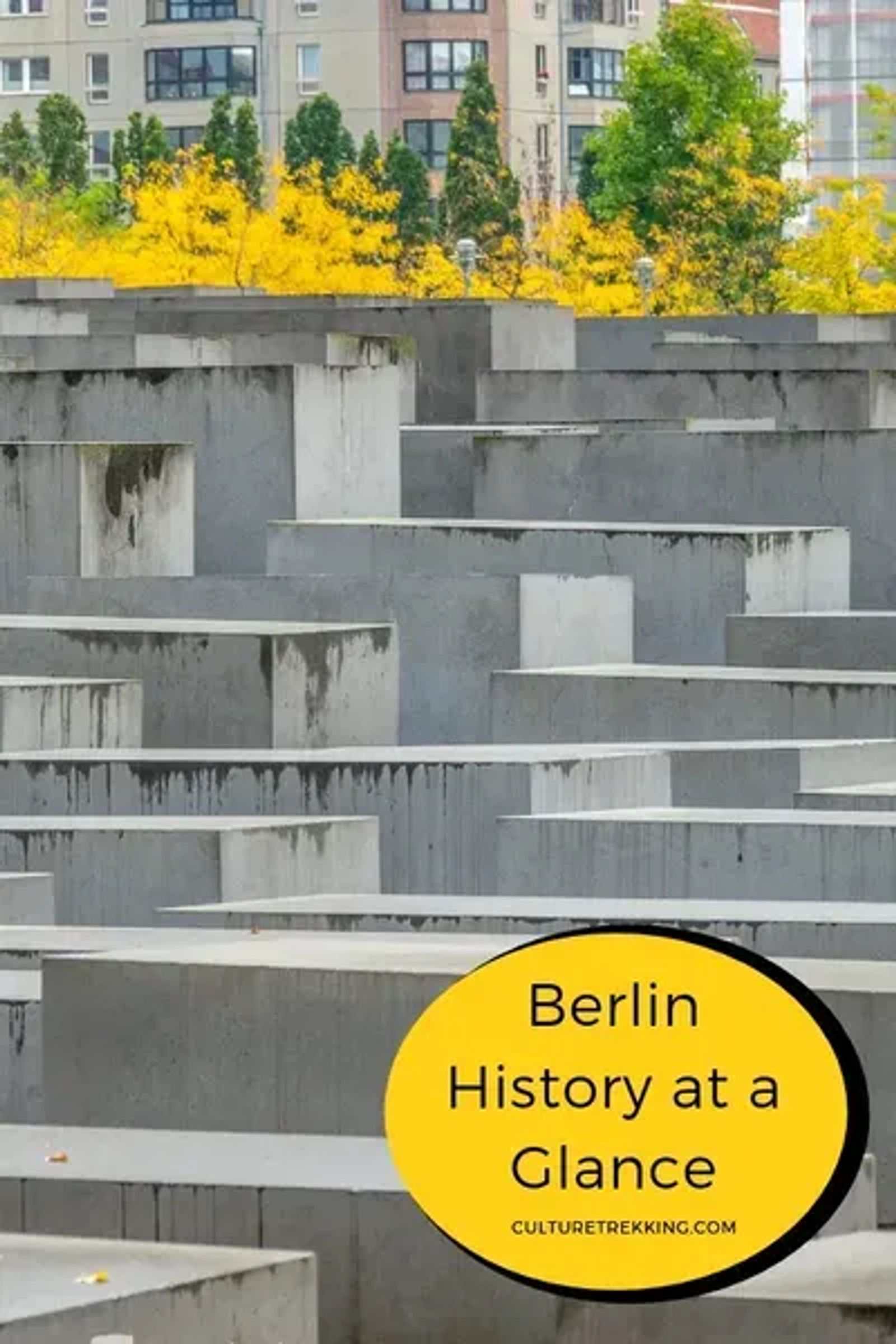


Welcome to Culture Trekking!
My name is Janiel, a leader in the travel industry with over 20+ years of experience with international travel. I specialize in solo female travel, cultural connections, sustainable adventures, food and history to help make your travel experiences fun, meaningful, and delicious. My experience in travel, and my personal story have allowed me to get published in Fodor's Travel, Atlas Obscura, Metro.co.uk, Trip Advisor, and multiple Podcast interviews. You can find me on pretty much every social media channel YouTube, Instagram, Twitter, Facebook, Pinterest, TikTok. To read more about me and my story click here. If you are a brand and would like to work with me, click here.


